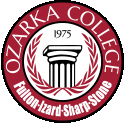What are "Public Performances?"
Suppose you invite a few personal friends over for a dinner and a movie. You purchase or rent a copy of a movie from the local video store and view the film in your home that night. Have you violated the copyright law by illegally "publicly performing" the movie? Probably not.
But suppose you took the same videocassette and showed it at a club or bar you happen to manage. In this case you have infringed the copyright of the movie. Simply put, videocassettes obtained through a video store are not licensed for exhibition. Home video means just that viewing of a movie at home by family or a close circle of friends.
What the Law Says
The Federal Copyright Act (Title 17 of the United States Code) governs how copyrighted materials, such as movies, may be used. Neither the rental nor the purchase of a videocassette carries with it the right to show the tape outside the home.
In some instances no license is required to view a videotape, such as inside the home by family or social acquaintances and in certain narrowly defined face-to-face teaching activities.
Taverns, restaurants, private clubs, prisons, lodges, factories, summer camps, public libraries, day-care facilities, parks and recreation departments, churches and non-classroom use at schools and universities are all examples of situations where a public performance license must be obtained. This legal requirement applies regardless of whether an admission fee is charged, whether the institution or organization is commercial or non-profit, or whether a federal or state agency is involved.
Penalties for Copy Right Infringement
"Willful" infringement for commercial or financial gain is a federal crime and punishable as a misdemeanor, carrying a maximum sentence of up to one year in jail and/or a $100,000 fine. Even inadvertent infringers are subject to substantial civil damages ranging from $500 to $20,000 for each illegal showing.
How to Obtain a Public Performance License?
Obtaining a public performance license is relatively easy and usually requires no more than a phone call. Fees are determined by such factors as the number of times a particular movie is going to be shown, how large the audience will be and so forth. While fees vary, they are generally inexpensive for smaller performances. Most licensing fees are based on a particular performance or set of performances for specified films.
In other specialized markets, such as hotels and motels, many Hollywood studios may handle licensing arrangements directly.
Why is Hollywood Concerned About such Performances?
The concept of "public performances" is central to copyright and the issue of protection for "intellectual property." If a movie producer, author, computer programmer or musician does not retain ownership of his or her "work," there would be little incentive for them to continue and little chance of recouping the enormous investment in research and development, much less profits for future endeavors.
Unauthorized public performances in the U.S. are estimated to rob the movie industry of between $1.5-$2 million each year. Unfortunately, unauthorized public performances are just the tip of the iceberg. The movie studios lose more than $150 million annually due to pirated videotapes and several hundred million more dollars because of illegal satellite and cable TV receptions.
Copyright Infringers are Prosecuted
The MPAA (Motion Picture Association of America) and its member companies are dedicated to stopping film and video piracy in all its forms, including unauthorized public performances. The motion picture companies will go to court to ensure their copyrights are not violated. Lawsuits for example, have been filed against cruise ships and bus companies for unauthorized on-board exhibitions.
If you are uncertain about your responsibilities under the copyright law, contact the MPAA, firms that handle public performance licenses or the studios directly. Avoid the possibility of punitive action.




